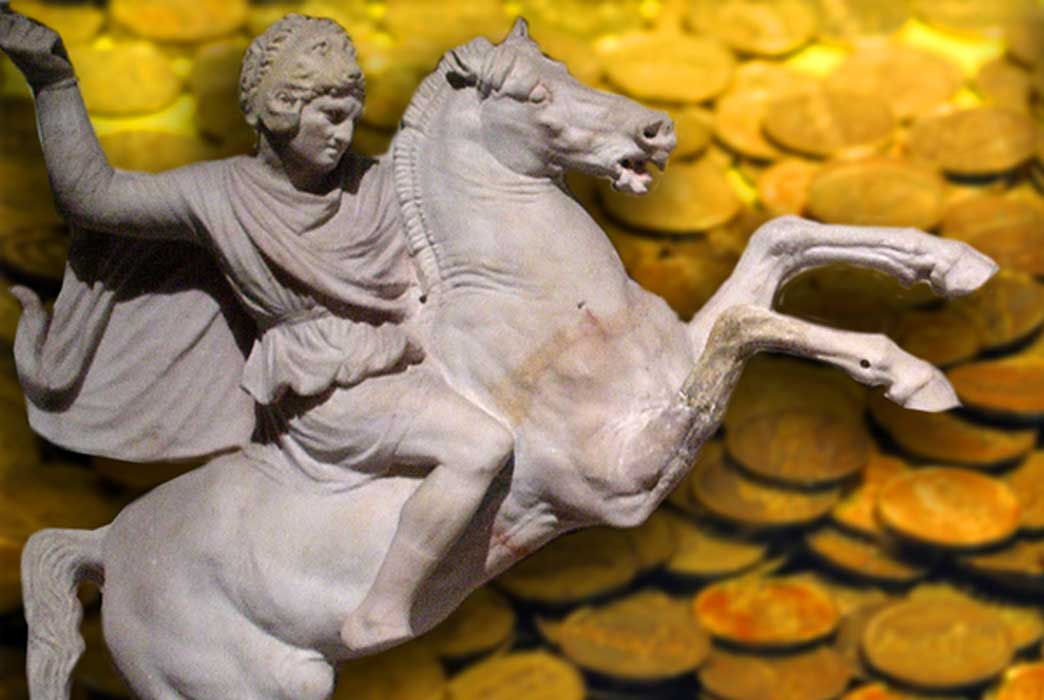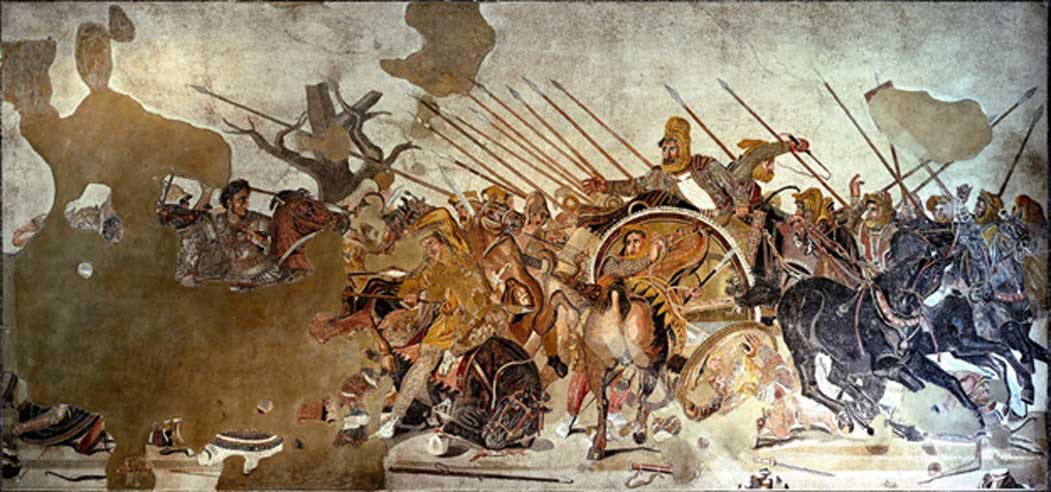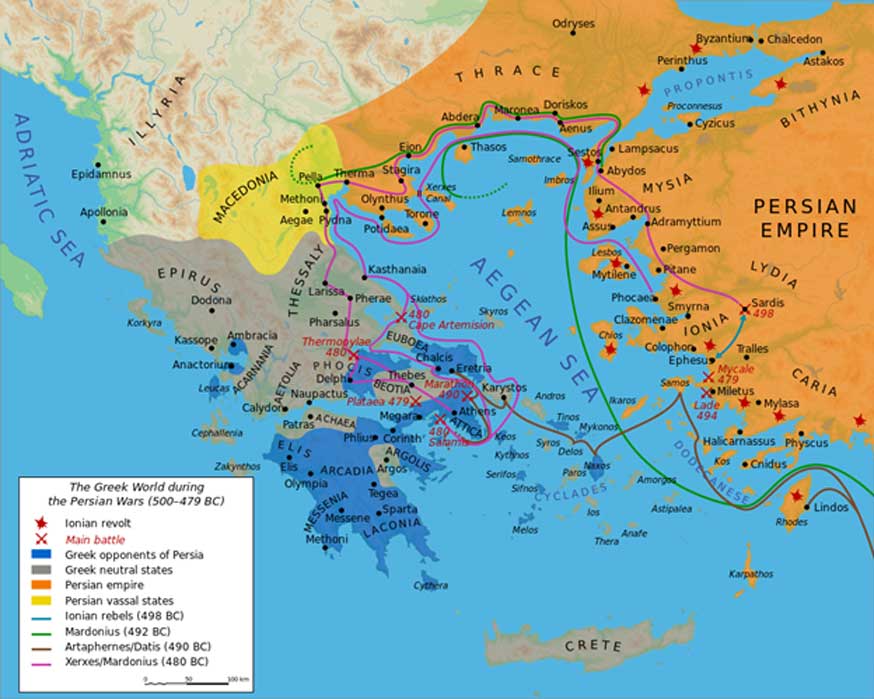
Alexander the Great Destroyer: Ancient Revenge or War for Profit? – Part II
“As Persepolis had exceeded all other cities in prosperity, so in the same measure it now exceeded all others in misery.”
Miseries along with poverty, for the people were raped of their land and their self. However, with such great turmoil came lasting hope that those affected would be redeemed. If Alexander felt that unity was close, the inhabitants of the Iranian plateau would not forget the sacking of Persepolis among other distasteful actions before and after.

Famous Alexander Mosaic, showing Battle of Issus. Alexander is depicted mounted, on the left (Public Domain)
However, much in the accounts of the sacking and destruction of Persepolis by Alexander may be an exaggeration, but then again, much of it could very well be true, as this was a war of revenge to some extent, due to the Persians supposedly burning down Greek temples during the Greco-Persian War.
Sacrifices to the Gods and Cultural Unity
I only say ‘supposedly’ because the Persians were very respectful of other cultures’ religions. Xerxes himself during the Greco-Persian War was accompanied by not only Magi but also by Greek diviners and specialists. Xerxes even sacrificed a thousand bulls at Ilion to the goddess Athena, and speaking of Athena, he ordered the Greek exiles to make a sacrifice to Athena at the Acropolis. However, this could have been due to Xerxes making alms to his own gods as well as theirs as a sign of respect and sorrow for the burning of the Acropolis—but this still does not answer whether the burning did or did not happen.

A map showing the Greek world at the time of the invasion (CC BY-SA 3.0)
Now, this is just a small showing of Xerxes’ respect towards other cultural beliefs. But it should not go unnoticed, for it does provide a glimpse into events in Greece during the war. The Persian invasion did leave death, destruction, and looting for that is obvious with all nations in war, but one has to be careful suggesting that it was Xerxes’ intent to take direct aim at holy temples with the few sources provided without considering the nature of the Persian respect toward other gods as demonstrated by Xerxes. On the other hand, we have Alexander who invaded under the pretense of a just cause or just war to avenge the Greeks for Persian wrongs. However, if your intention is to invade and conquer, to bring about social harmony through cultural unity, burning down the Persian house is not a great start towards promoting peace.




